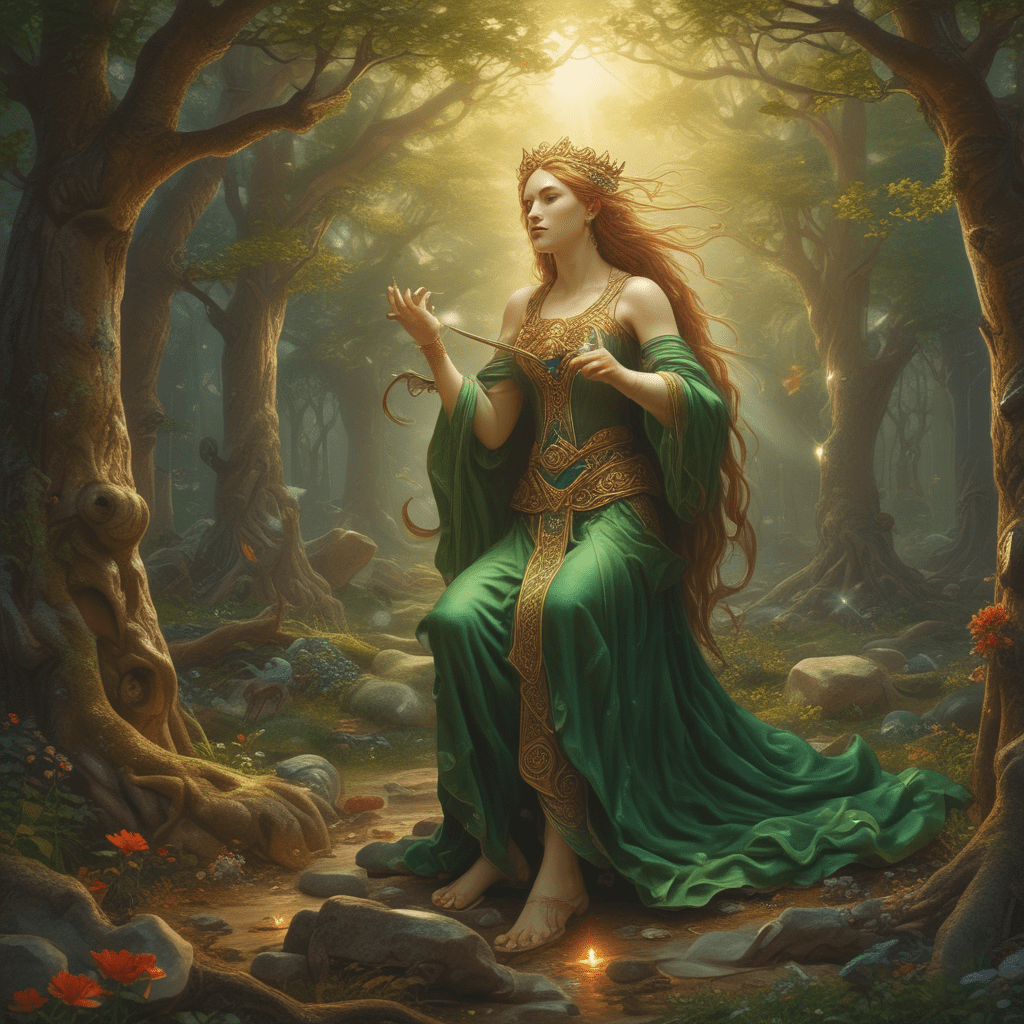The First Echoes: Creation Myths That Resound Through Time
Introduction to Creation Myths
Creation myths are foundational narratives that seek to explain the origins of the world, humanity, and the cosmos. These stories are not merely ancient tales; they are vital to understanding the values, beliefs, and cultural identities of various societies. Across different cultures, creation myths serve as a lens through which communities view their existence, offering insights into their relationship with the divine, nature, and one another.
The Universal Themes of Creation
Common motifs in creation stories reveal shared human experiences and concerns. Across cultures, we find similar themes such as:
- Chaos and Order: Many creation myths begin with a chaotic state that is transformed into an ordered universe.
- Divine Intervention: Deities or supernatural forces often play a crucial role in the creation process.
- Human Origins: Most myths explain the creation of humanity, often portraying humans as a reflection of divine will.
These recurring themes highlight humanity’s quest for understanding and the need to make sense of existence amidst chaos.
The Role of Nature in Creation Myths
Nature often serves as a central element in creation myths, symbolizing the interconnectedness between the cosmos and living beings. Elements such as earth, water, fire, and air are frequently depicted as both the materials of creation and the forces that shape existence. For instance:
- Earth: Many cultures regard the earth as a mother figure, nurturing life.
- Water: Often symbolizes the source of life, seen in myths where creation emerges from primordial waters.
- Fire: Represents transformation and energy, playing a role in the creation of humanity in some myths.
- Air: Frequently associated with breath and spirit, connecting the physical and metaphysical worlds.
These natural elements reflect the belief that the universe is a living entity, deeply intertwined with human life.
Prominent Creation Myths from Around the World
Here are some key creation myths that illustrate the diversity of thought regarding the origins of the world:
- The Genesis Account: In the Judeo-Christian tradition, the Book of Genesis narrates God creating the world in six days, culminating in the creation of humans in His image.
- The Enuma Elish: This Babylonian myth describes how the god Marduk defeated the chaotic goddess Tiamat and fashioned the world from her remains, establishing order from chaos.
- The Popol Vuh: The sacred text of the Maya recounts the creation of humans from maize, reflecting the importance of agriculture and the earth in Maya culture.
- The Dreamtime Stories: Indigenous Australians tell stories of ancestral beings who shaped the land, animals, and humans, emphasizing a deep connection to the environment.
The Influence of Creation Myths on Culture and Society
Creation myths significantly shape cultural identity and values. They offer frameworks for understanding existence and morality, influencing:
- Art: Many artistic expressions—paintings, sculptures, and literature—are inspired by creation myths, reflecting their themes and narratives.
- Religious Practices: Rituals and ceremonies are often rooted in these myths, reinforcing community bonds and cultural heritage.
- Cultural Norms: Values derived from creation stories often guide societal behavior and ethics.
Creation Myths and Their Interpretation in Modern Times
In contemporary discussions, ancient myths continue to resonate, prompting reflections on human existence. The intersection of modern science and mythology creates a dynamic dialogue:
- Scientific Perspectives: While creation myths and scientific theories of evolution differ, both seek to explain human origins and the universe.
- Myth as Metaphor: Many people interpret myths not as literal truths but as allegorical stories that convey deeper meanings about life.
The Psychological and Philosophical Underpinnings of Creation Myths
The creation of myths can be attributed to psychological needs and philosophical inquiries:
- Origins and Meaning: Humans have a psychological need to understand their origins and purpose, leading to the creation of narratives that provide answers.
- Coping with Existence: Myths offer comfort and explanations for the mysteries of life and death, helping individuals grapple with existential fears.
Comparative Analysis of Creation Myths
A comparative analysis reveals both similarities and differences between Eastern and Western creation stories:
- Creation from Chaos: Both traditions often begin with chaos, though the specifics of the chaos and subsequent order differ.
- Role of Deities: While many Western myths emphasize a singular, omnipotent creator, Eastern traditions often depict multiple gods working in concert.
- Cultural Context: The cultural context shapes narratives, where environmental factors influence the depiction of creation.
The Evolution of Creation Myths Through Time
Creation myths are not static; they evolve and adapt over time. Factors influencing this evolution include:
- Globalization: Increased cultural exchange leads to shared narratives and reinterpretations.
- Modern Interpretations: As societies change, so do their myths, often reflecting contemporary values and scientific advancements.
Conclusion: The Enduring Legacy of Creation Myths
Creation myths continue to hold significance in modern society, serving as a bridge between ancient wisdom and contemporary thought. Preserving these narratives is crucial for understanding cultural heritage and human values. As we navigate a changing world, the potential for future reinterpretations of these myths remains, allowing new generations to find meaning in the timeless stories of creation.
